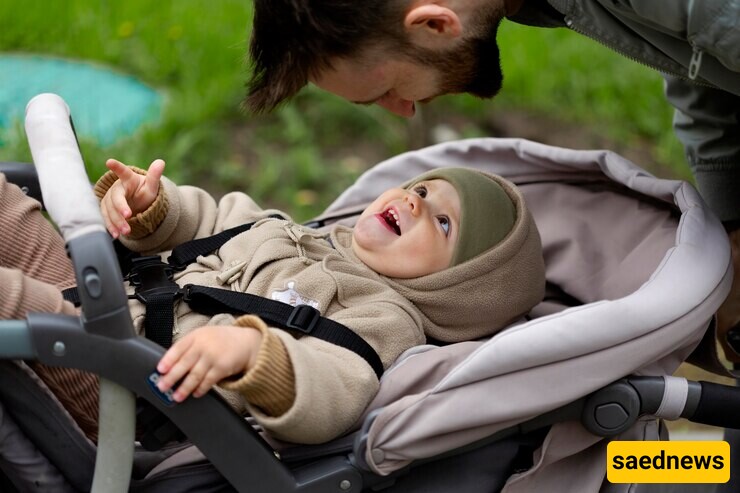SAEDNEWS: In Iranian culture, having a child is often seen as a way to bring sweetness and joy into life. You’ve likely heard this sentiment before. In this article, we explore the impact of having children on resolving marital issues.


While having a child can influence a couple's life to some extent, this effect is neither deep nor lasting. With the birth of a child, the daily routine of life changes, which may temporarily distract from existing tensions. However, this change does not address the root of marital problems—it only masks them for a while.
Marital conflicts often arise from an inability to make joint decisions, manage crises, resolve conflicts, negotiate, and collaborate effectively. If your relationship is struggling, it’s essential to address these issues and develop the necessary skills before deciding to have a child. Any weakness in these skills can amplify existing problems in the years to come.
Keep in mind that until your child grows old enough to make significant decisions independently, you and your spouse will need to make choices on their behalf. If you cannot agree on fundamental aspects of your relationship, these unresolved conflicts will intensify with the added responsibility of raising a child, making family life even more challenging.
A newborn might temporarily distract parents from their conflicts, but sooner or later, new pressures and worries about raising an independent child will emerge.
In the past, a woman’s role was largely defined by childbearing. However, modern women marry for different reasons, and their resistance to outdated expectations has significantly reshaped family dynamics.
Today, both men and women have developed a strong sense of individuality and independence. However, being successful parents often requires sacrificing personal dreams and desires for the well-being of the family.
A balanced family thrives on "us" rather than "me." The birth of a child introduces new demands and pressures into a marriage, and if couples rely on old habits and ineffective coping mechanisms, the risk of relationship breakdown increases significantly.
When there are no deep-rooted incompatibilities between spouses, having a child can bring positive changes to their relationship, including:
Stronger Partnership: Couples must make important decisions together, which can improve their ability to communicate and compromise effectively.
Increased Connection: Through caring for and playing with their child, spouses may find each other more attractive and connected, improving intimacy.
Enhanced Trust: Sharing parenting responsibilities can foster mutual understanding and trust.
Personal Growth: Parenthood often encourages emotional growth, helping couples become more mature and less prone to childish arguments.
Prioritizing Quality Time: Raising a child may encourage couples to spend more meaningful time together and appreciate shared moments.
Awakening the Inner Child: Parenting often revives a playful, joyful spirit in adults, allowing them to face challenges with renewed energy and optimism.
Social Support: The presence of a child can strengthen support from extended family and social networks, improving emotional well-being.
Renewed Joy and Excitement: A child can bring liveliness and joy into a family, reducing tensions and daily frustrations.
Research shows that children of divorce face unique challenges, but they are often better off than children who grow up in homes filled with constant conflict and unhappiness. Children whose parents separate amicably and shield them from disputes are generally more emotionally secure.
Having a child is a profound responsibility that introduces new pressures and challenges into a marriage. If the marriage is unstable or unhealthy, the presence of a child can worsen existing problems rather than solve them.
Bringing a child into a troubled relationship is an unfair and unkind choice—a child is not a tool to fix a broken marriage, nor a temporary distraction from unresolved conflicts.
Ultimately, whether having a child strengthens or strains your relationship depends on your attitude, problem-solving skills, and willingness to face challenges together as a team.

